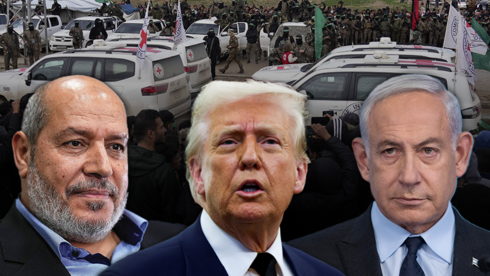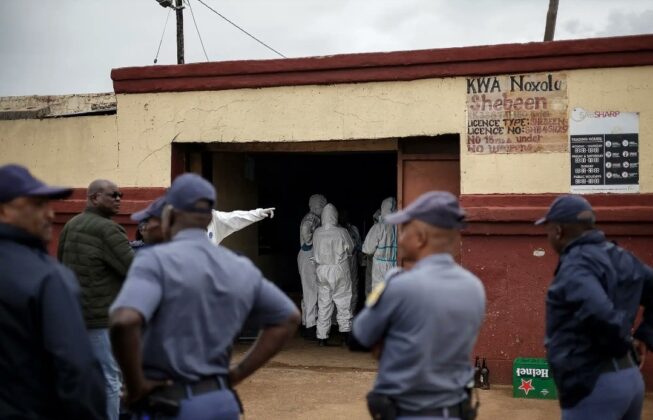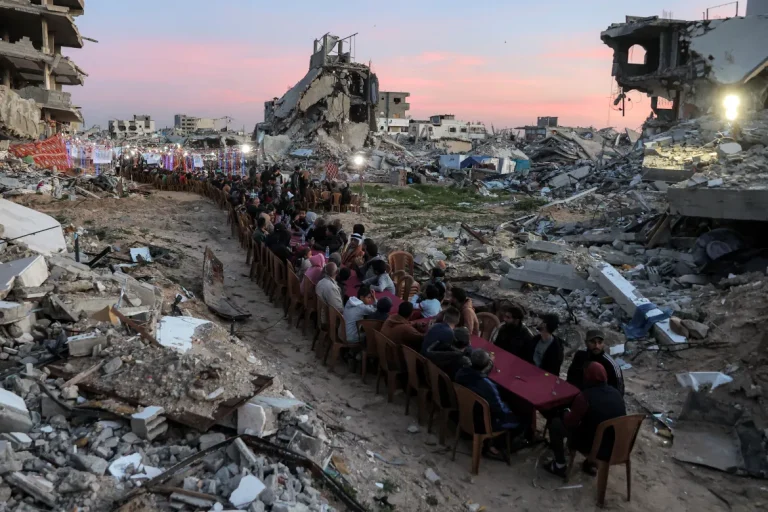
Israel and Hamas agree to the first phase of a ceasefire deal in Gaza, as U.S. President Donald Trump holds a telephone call with Israeli Prime Minister Benjamin Netanyahu. Image: Ynetnews.
The talks, being held in the Red Sea resort of Sharm el-Sheikh on the eve of the second anniversary of Hamas’ Oct. 7, 2023, terror attack, will focus on a 20-point plan to peace unveiled by U.S. President Donald Trump to bring an end to the bloodshed, free hostages, and formulate a long-term plan for the administration of Gaza.
High-Level Delegations and U.S. Mediation
Hamas‘ delegation, led by senior official Khalil al-Hayya, who was the target of an Israeli missile strike in Qatar last month, landed in Egypt early Monday morning. Israel’s delegation, which was led by Strategic Affairs Minister Ron Dermer, departed for the summit later in the day, Prime Minister Benjamin Netanyahu’s office said.
Included at the talks are U.S. special envoy Steve Witkoff and Trump’s son-in-law and senior adviser Jared Kushner, who are helping to bridge the remaining differences.
Trump stated the talks have been “very successful and moving very quickly,” writing on Truth Social that “the first phase should be completed this week.”
In a passionate plea, the Hostages Families Forum Headquarters, on behalf of hostage relatives who are still in Gaza, composed an “urgent letter” to the Norwegian Nobel Committee to give Trump the Nobel Peace Prize “for his unprecedented efforts towards international peace.”
“At this moment, President Trump’s comprehensive strategy to release all the remaining hostages and to once and for all bring this terrible war to an end is on the table,” the forum stated. “For the first time in months, we’re optimistic that our nightmare will finally end.”
The first phase of the deal would see Hamas release 48 still-holding Israeli hostages, an estimated 20 believed to be still alive, in exchange for hundreds of Palestinian prisoners, 250 of whom were serving life sentences, Egypt’s foreign ministry said.
The accord also envisages the gradual Israeli withdrawal from Gaza and the creation of a technocratic or international government to rule the region. Hamas welcomed some aspects of the deal but rejected Trump’s demands that it disarm or dissolve as a political movement.
Israel has agreed “in principle” to the plan but insists on hard deadlines for the release of hostages and reserves the right to resume military action if the ceasefire breaks down.
Domestic and Diplomatic Pressure
While Trump was upbeat, US Secretary of State Marco Rubio adopted a cautious tone, saying on Sunday there was “still work to be done.”.
Netanyahu is also at war internally as far-right ministers Bezalel Smotrich and Itamar Ben-Gvir warned of calling a stop to the bombing of Gaza a “grave mistake.” Ben-Gvir took it further by stating that he would topple the coalition government if Hamas gets to stay in power after the deal.
Yair Lapid, the opposition leader, countered by offering parliamentary support to Netanyahu while calling for unity “so extremist voices don’t sabotage peace.”
Despite the optimistic outlook in the negotiations, Israeli airstrikes continued over the weekend in Gaza. Hamas’ press office reported that 94 Palestinians were killed in 131 airstrikes during the last 48 hours. The war has killed more than 67,000, most of them women and children, and destroyed nearly 80% of the enclave’s infrastructure, according to the Gaza Health Ministry.
Israel launched its offensive after Hamas’ Oct. 7 attack killed about 1,200 Israelis and took over 250 hostages in Gaza.
Former Israeli Ambassador Alon Pinkas said there is a “50-50” chance of a prisoner-swap but that the broader peace architecture is “still fragile and ambiguous.”.
However, with foreign brokers in play and the two sides coming under mounting pressure, the Sharm el-Sheikh summit is the most credible effort yet to end the Gaza war.
Trump prodded negotiators to “move fast,” threatening: “Time is of the essence, or massive bloodshed will follow, something nobody wants to see.”



